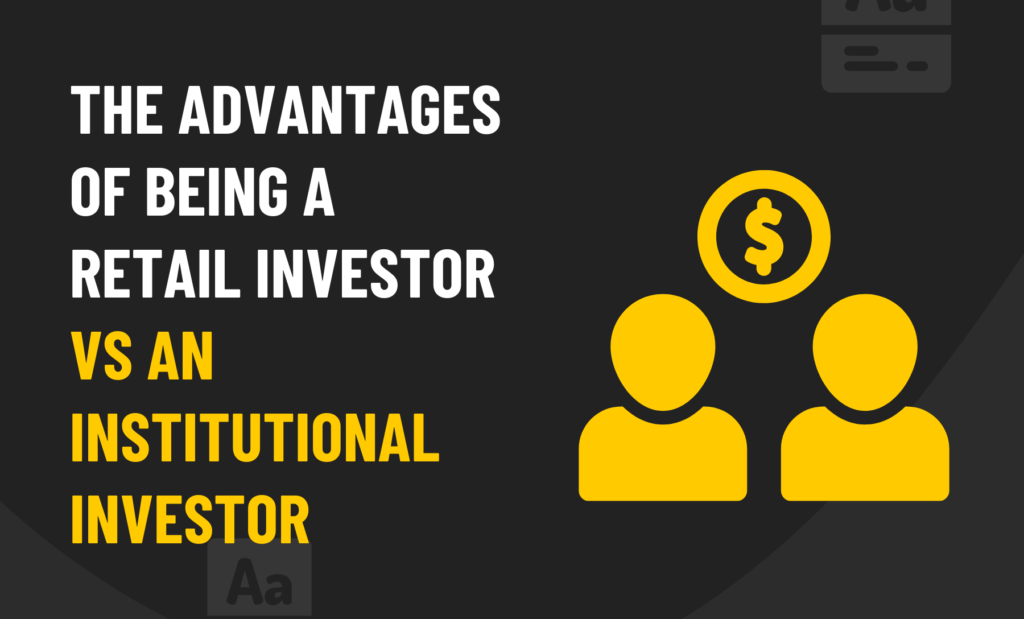An investment is the purchase of an asset with the intention of earning money down the road. Retail and institutional investors are typically the two types of investors who can make investments.
Institutional vs. Retail Investors
A company that manages investments on behalf of certain shareholders or members is known as an institutional investor. These investors typically trade 10,000 or more shares at a time and have huge resources.
Retail investors are sometimes also called individual investors. These are non-professional investors who purchase assets such as stocks, bonds, securities, mutual funds and exchange traded funds (ETFs).
Retail investors make these purchases by going through another party such as a brokerage firm or investment adviser. These are individuals who tend to be motivated to invest because they are looking to safeguard their future and build their personal wealth. If you are reading this you are probably a retail investor.
As retail investors tend to have a smaller purchasing power that stems from their personal earning ability, they also tend to invest in smaller amounts and trade less frequently. If you are reading this you are probably a retail investor, and you might think that institutional investors hold all the advantages over you. But there are advantages to being a retail investor. Here’s a look at some of them.
You can play the long game
Institutional investors – and those they act on behalf of – need to show positive results either yearly or quarterly, so they tend to trade more frequently and sometimes even over-trade, resulting in mistakes that could lead to their investment underperforming.
As a retail investor you may be better able to ignore short-term market corrections and stay vested for longer periods of time if you feel that you’ve have found a worthwhile investment. Put simply, you can possibly afford to have the patience that institutional investors cannot.
Smaller investments are easier to make
Retail investors have the freedom to invest in companies of any size and are able to invest in smaller companies. Larger, institutional investors are often limited in the kinds of investments they can consider because they have such large amounts to invest. As a result, retail investors are able to take advantage of the small firm effect.
You are able to hold cash
Retail investors can sell out of the market when the prices are high and wait for a better buying price, further improving their potential return on investment. Institutional investors however are likely to be unable to do this because of regulations and investor pressure.
Liquidity benefits
As retail investors are only able to buy and sell shares at a small scale, stock prices are unaffected by their buying or selling actions. The smaller quantity of stocks makes them more liquid for retail investors. Institutional investors are able to have a much greater impact on stock prices and the volume at which they trade can make it harder to buy and sell. Moreover, they also have a stronger effect on market sentiment and can cause panic selling.
Diversification vs focus
Diversification is not what it used to be but is often a mandatory requirement for institutional investors. Retail investors however are free to focus on the best-performing stocks in their portfolio as they are expected to manage risk themselves.
Personal interest
As retail investors are individuals who are investing their own money, they are more likely to take a very keen interest in monitoring and nurturing their investments. Institutional or professional investors are doing so on behalf of another entity and so may not be able to pay as much individualized attention as you can to your own portfolio. When it’s your money, and only your money, you have to pay more attention, it’s as simple as that.





